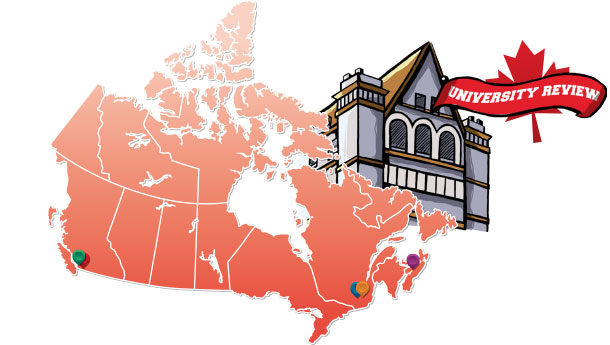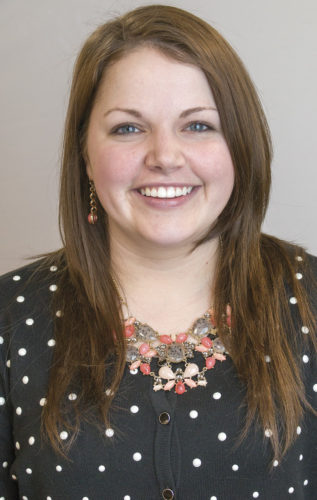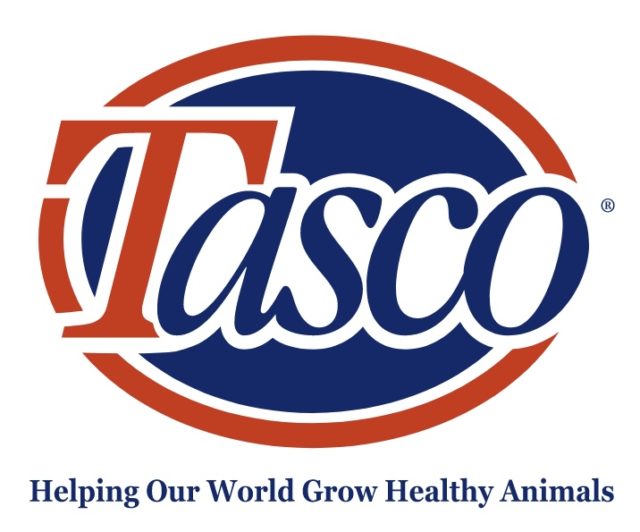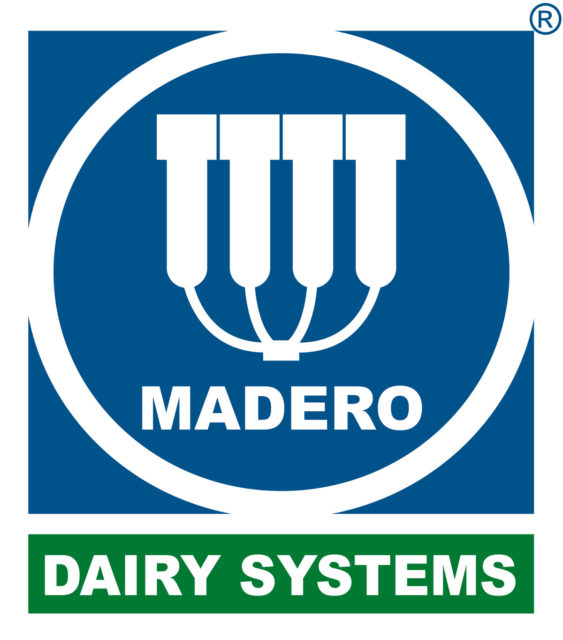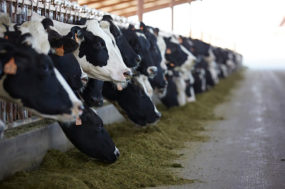University of the Fraser Valley
33844 King Road, Abbotsford, BC
Contact:
Shelley Hayes
888-504-7441, ext. 2813
What dairy-related degrees are offered?
- Milker Technician Certificate
- Livestock Production Certificate
- Agriculture Technology Diploma, Livestock Option (specializing in livestock production)
How many students are enrolled in your dairy and/or animal science programs?
50 (25 first year and 25 for second year)
Do you have a dairy herd on or nearby campus?
We have new facilities on campus and plan to have small numbers of dairy animals for practical hands-on instruction, and then students are placed on practicum with the neighbouring farms (we are located in a dairy belt).
The facility is set up to also house a range of other animals, including swine, poultry, beef, sheep and goats, to name a few. The UBC dairy farm is close by and students are able to use that facility.
What are some examples of student activities offered?
- Students have an Agriculture Student Association. Follow them on Twitter: twitter.com/ASAUFV
- UFV Student Union Society also has a wide range of clubs and associations for UFV students.
Examples of graduate placement:
Graduation placement is high – there are usually more jobs than we have students.
What are average costs of tuition per year?
- Milker Technician Certificate: $3,800 (with books and supplies $4,600)
- Livestock Production Certificate (also year 1 of Agriculture Technology Diploma Livestock Option): $6,200 (with books and supplies: $6,500)
- Agriculture Technology Diploma Livestock Option Year 2: $5,800 (with books and supplies: $6,500)
NOTE: Students in the Livestock Production Certificate program who take a dairy practicum are also eligible to receive the Milker Technician Certificate along with their Livestock Production Certificate.
What makes your school/program unique?
The reasons are too numerous to list, but here are a few:
- Low tuition fees
- Small interactive class sizes
- Hands-on lab courses
- Opportunities for wonderful field trips and interaction with a wide host of local agribusinesses and organizations
- Support Agriculture and Agri-Food Canada scientists and research stations
- Instructors have all have worked and continue to work in the industry
- Lots of scholarships and bursaries available
- For students who have been out of school for a while, or others that may need it, there is ample academic support available
- Lots of employment opportunities
- Transferability to other institutions
- For students who want, specialized practica of their choice
- All hands-on learning – animals and greenhouse facilities
- Part-time employment available to students in the department
- Beautiful setting – The city is nestled in the Cascade Mountains and has numerous local recreational sites including Cultus Lake (which is minutes away) and Chilliwack Lake provincial parks.
There are many outdoor activities in the area, including hiking, horseback riding, biking, camping, fishing and golf.
- Close proximity to Vancouver (one hour away) - a modern Pacific Rim city with ample amenities and a bustling nightlife.
Dalhousie University
6299 South St, Halifax, NS
Contact:
Dalhousie University Registrar’s Office
902-494-2450
866-729-4400 (toll-free)
What dairy-related degrees are offered?
- Bachelor of Science in Agriculture
Majors include: Animal Science, Agricultural Business and Agricultural Economics
- Diploma in Business Management
Focuses include: Dairy, Agriculture
How many students are enrolled in your dairy and/or animal science programs?
- 209 – Bachelor of Science Animal Science, Agricultural Business and Agricultural Economics
- 49 – Diploma in Business Management
Based on 2013-2014 enrolment
Do you have a dairy herd on or nearby campus?
Students studying on Dalhousie University’s Agricultural Campus take advantage of our on-campus farm with a herd of dairy cattle, a flock of sheep and a number of horses, among other features.
Contact:
Jean Lynds
Crops and Ruminant Coordinator
902-893-6676
What are some examples of student activities offered?
Students on the ag campus get involved in a diverse group of club, societies and annual events each year.
Some examples include Judging Team, Ruminate Discussion Group, Agrology Club, College Royal – an annual event where students, faculty and staff show animals in dairy, sheep or poultry classes.
What online dairy courses or additional online education opportunities are offered?
We currently offer an Organic Livestock Production course online.
Examples of graduate placement:
Our students enter into a number of different areas upon graduation. Some examples include:
- Family dairy farms
- Classifiers
- Nutritionists at feed mills
- Milk testers
- Meat inspectors with the federal government
- Animal pharmaceutical sales
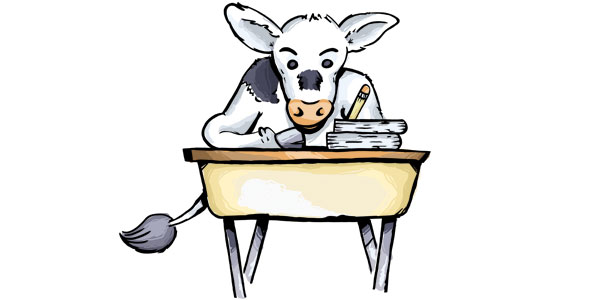
What are average costs of tuition per year?
Undergraduate degree fees – based on 2014-2015 tuition and fees:
- Tuition: $6,180
- Books: $1,200
- Student fees: $571
- Health and dental: $253
- Residence and meal plan: $8,385
- Other res fees: $110
- Total tuition and fees: $16,699
Technical program (diploma) fees – based on 2014-2015 tuition and fees:
- Tuition: $4,572
- Books: $1,000
- Student fees: $571
- Health and dental: $253
- Residence and meal plan: $8,385
- Other res fees: $110
- Total tuition and fees: $14,890
Undergraduate degree fees – non-Canadian citizen:
- Tuition: $12,360
- Books: $1,200
- Student fees: $570.80
- Health and dental: $491
- Residence and meal plan: $8,385
- Other res fees: $110
- Total tuition and fees: $23,117
Technical program (diploma) – non-Canadian citizen
Based on 2013-2014 Tuition and Fees:
- Tuition: $9,144
- Books: $1,000
- Student fees: $570.80
- Health and dental: $491
- Residence and meal plan: $8,385
- Other res fees: $110
- Total tuition and fees: $19,700
What makes your school/program unique?
Modern agriculture at Dalhousie University brings together the land and the lab, innovation and invention, students and faculty. Our hands-on learning and research opportunities connect students with the world in ways that make real differences.
Students can choose from two-year diploma programs or four-year bachelor’s degrees – whatever works best for their lifestyle and career goals.
No matter the program, students benefit from the “living lab” that is our campus, faculty who are experts in their fields and a whole host of resources that allow them to graduate with confidence in their abilities to succeed in their chosen fields.
Institut de technologie agroalimentaire (ITA) at Campus de Saint-Hyacinthe and Campus de La Pocatière
3230 Rue Sicotte, Saint-Hyacinthe, QC
Contact:
Nathalie Rioux, recruiter
Campus de La Pocatière
(418) 856-1110, poste 1216
Jean-Luc Sauvé, recruiter
Campus de Saint-Hyacinthe
(450) 778-6504, poste 6416
What dairy-related degrees are offered?
ITA is specialized in agricultural and environmental sciences, food and nutrition. We offer a variety of undergraduate degrees, as:
- Managing and operating an agricultural business (three-year degree)
- Stock production technology (three-year degree)
- Farm equipment technology (three-year degree)
- Manufacturing dairy products (one-year degree)
How many students are enrolled in your dairy and/or animal science programs?
We have about 1,000 per year in our two campuses.
Contacts:
What are some examples of student activities offered?
Our students participate in different dairy competitions with the “Club des expertises.” We tour dairy farms, attend the Royal Agricultural Winter Fair in Toronto each year, attend dairy shows and sales. Each year, we tour dairy farms during different international trips.
Examples of graduate placement:
Between 91 and 100 percent per degree
What are average costs of tuition per year?
$7,899 per semester
What makes your ag program well-known?
ITA is the largest French technological agro-food educational centre in North America. It is a specialized collegial educational centre with a mission to train a labour force qualified to work in the agro-food sector.
Our technological training programs rest on specialized infrastructures: school farms, equestrian centres, dairy product and food processing plants, teaching gardens, composting centres, greenhouse complexes, etc.
Most of our programs give students the opportunity to gain practical experience through internships and a teaching approach that has students alternating between work and studies and even taking part in internships abroad.
Mcgill University – Macdonald Campus
Macdonald Campus: 21111 Lakeshore Rd, Ste. Anne de Bellevue, QC
Contact:
Student Affairs Office (SAO)
(514) 398-7925 for all degree inquiries
For info about the Farm Management and Technology Diploma (three years):
Caitlin MacDougall
(514) 389-7818
What dairy-related degrees are offered?
As part of the bachelor of science degree major in Agro-environmental Sciences, students may specialize in Animal Production, or under the Life Sciences major, they may specialize in Animal Biology or Animal Health and Disease.
Students can also complete a diploma in Farm Management and Technology (FMT), where students can select courses specific to dairy production for their animal production electives.
How many students are enrolled in your dairy and/or animal science programs?
There are approximately 100 students in the Farm Management and Technology Diploma, and 160 enrolled in the Life Sciences and Agro-environmental Sciences majors at the degree level (Fall 2013 statistics).
Do you have a dairy herd on or nearby campus?
Yes. We milk about 70 head, mostly Holsteins but with Ayrshires, Brown Swiss and Jerseys also.
Contact:
Paul Meldrum, Macdonald Farm Manager
(514) 398-7701
What are some examples of student activities offered?
We send a Dairy Challenge team each year (to the regional level) and occasionally for the national competition also.
There is also a Livestock and Judging Club, which competes at judging competitions across Quebec and eastern Canada and hosts the largest judging competition in the region.
The graduating FMT class travels to Southwestern Ontario each year on a three-day agri-business tour. Field trips and dairy farm case studies are also features of the dairy production courses.
Examples of graduate placement:
Graduates from the Farm Management and Technology program take on a variety of positions as animal feed representatives, quality control technicians, ag research technicians, A.I. and genetics sales representatives, professional fitters, herdsmen and farm managers.
Many return to their home farms to become involved in the operation, while others start up their own enterprises. From the degree, graduates may take on work of this sort, or proceed to certification as Agronomes, in order to work in agricultural economics, banking, insurance or technical advising.
There is nearly a 100 percent placement rate in agriculture for FMT graduates.
What are average costs of tuition per year?
- For FMT students: Canadian tuition: $1,750 per year; out-of-province/international tuition: $2,400
**subject to increase for Fall 2015 admission
- For degree students: Quebec residents: $3,700; Canadian residents not-from-Quebec: $8,000; and international: $19,300.
What makes your students exceptional?
Macdonald Campus students are exceptional because they strive to be innovative, effective leaders in the industry. The small population allows students to have strong relationships with their lecturers, which in turn provides them with a better learning environment and college experience.
As graduate and doctoral programs are also taught here, students are mentored by world-class researchers and professors. Students come from both rural and urban backgrounds, so they interact with peers with completely different world views but who share a passion for agriculture.
The ratio between English-speaking to French-speaking students, and Canadian to international students, also provides a wide array of cultures and experiences.
University of British Columbia
2329 W Mall, Vancouver, BC
Contact:
Chris McGill, Applied Biology Program Coordinator
(604) 822-2794
What dairy-related degrees are offered?
- Bachelor of Science in Applied Animal Biology
- Bachelor of Science in Food and Environment
How many students are enrolled in your dairy and/or animal science programs?
Approximately 270
Do you have a dairy herd on or nearby campus?
Yes. It’s the UBC Dairy Education and Research Centre.
Contact:
Nelson Dinn, Manager
Dairy Centre
What are some examples of student activities offered?
UBC PAW Club (pre-vet and animal welfare club).
What are average costs of tuition per year?
- For domestic (Canadian) undergraduate student taking a full course load (32 credits), 2014-2015 annual tuition is $5,216.
- For international undergraduate student taking a full course load (32 credits), 2014-2015 tuition is $25,599.
What makes your school/program unique?
The UBC Faculty of Land and Food Systems’ 24-ha Centre for Sustainable Food Systems (“the UBC Farm”) is an exceptional teaching and research facility unique in North American urban universities.
Students have many opportunities, through course work, practicum, internships, directed studies, etc., to do hands-on learning at the farm.
Our faculty is also home to a 500-head fully operational dairy farm located 75 miles from the UBC – Vancouver campus. The Dairy Education and Research Centre’s world-renowned, state-of-the-art teaching and research facilities provide undergraduate and graduate students with extraordinary learning opportunities.
Every year, the dairy centre hosts outstanding scientists and students from around the world who undertake research in dairy cattle welfare, nutrition and reproduction. PD
